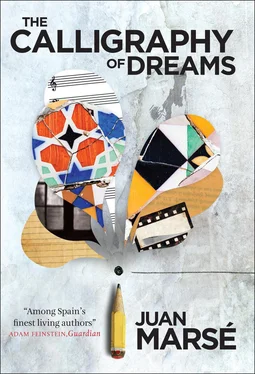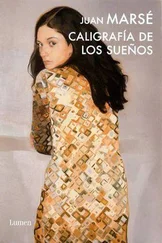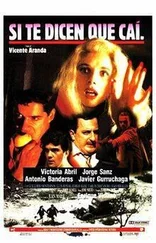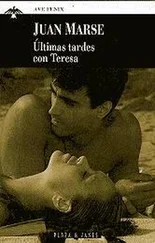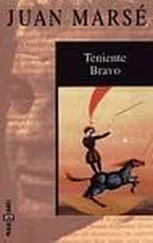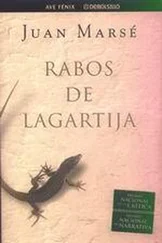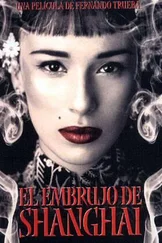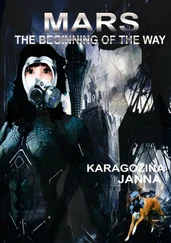He watches as his mother struggles to cut off the end of the bandage, having trouble pushing her fingers into the ends of a pair of scissors not designed for left-handed people.
“When I’m older, I’m going to be rich, Mother.”
“Oh, are you? That’s good.”
“I won’t be a goldsmith by then. I probably won’t be able to work with gold or platinum or diamonds or anything like that, but I’ll be rich all the same.”
“Goodness. And how do reckon you’ll become rich?”
“Besides being a pianist, I’ll be a scissors manufacturer.”
“Scissors?”
“I’ll invent scissors for left-handed people. Yes, I’ll sell them and get rich.”
His mother makes him a fresh sling with the light-green silk headscarf she was given by Don Víctor Rahola. She ties it behind his head, leaving the hand high up on Ringo’s chest to lessen the blood pressure.
“You’re done,” she says. “Now make sure you’re careful, or it’ll get infected again. And remember, keep your hand up high and it will hurt less.”
*
And so he is on his own for most of the day, with no obligations or worries apart from his crushed finger and finding enough money to rent novels from the second-hand bookshop on Calle Asturias. He secretly cultivates a nostalgia for the future, and a growing hostility towards his surroundings. He has the time and the freedom to live intensely every word of the books he reads, to come and goes from his home to the tavern or the Parque Güell, his novel tucked under his arm in its sling, with a cool but gloomy look and with romantic lines under his eyes, untidily dressed, his hair tousled, and yet always with an unshakeable inner courtesy, a fervent politeness that before long turns into a feeling of rootlessness and loneliness. No longer a child, he knows that the time of the tall tales has never stood still, never held up the blind onward march of the world, but he feels as though he is living an interval, a parenthesis between the workshop he has left behind for good, and the longed-for piano. By freeing him from work, his longer than expected convalescence leads him to the most idiosyncratic, diverse and uneven choice of books. From Karl May to Balzac and Dostoevsky, from Jules Verne to Edgar Wallace and Papini, Zane Grey, Curzio Malaparte, Stefan Zweig and Knut Hamsun. From the long table of bargains at the Calle Asturias bookshop, from the jumble of dog-eared, battered books his hand (still with five fingers) had begun the year before to dig in search of treasure, and where one afternoon he had by chance come across The Snows of Kilimanjaro — a small, oblong book of short stories with white covers and three fly droppings on the front — he also suddenly discovered A Tale of Two Cities ( It was the best of times, it was the worst of times, it was the age of wisdom, it was the age of foolishness, it was the epoch of belief, it was the epoch of incredulity … ) and above all, Hunger .
During the day he wrote with his hands wrapped in rags , he reads avidly, and underlines the paragraph with his pencil. Not so much preoccupied as with a pleasant feeling of relief, for the first time he seriously entertains the possibility that he will be forced to earn his living in some other way, no longer from jewels or precious stones, but still hopeful that his future will be rich in emotions, clinging to the tattered ideal of the tormented, renowned concert pianist who travels the world winning plaudits and having beautiful women fall in love with him, triumphing over adversity. He still occasionally hears the harmonious echo of maestro Emery’s piano as the lid falls shut, a sustained, resonant and mournful sound, as though the panoply of wires and hammers in the depths of the ancient Steinway were also lamenting its forced but temporary distancing from music. However this may be, it’s almost certain he is not going be a salaried craftsman in some dark jeweller’s workshop, resigned forever to the blowtorch and the zinc-lined toolbox on his knees: in fact, his parents are already considering other possibilities for when his hand is better.
Could fate have shown itself in another, less cruel and painful way? It could, he thinks, but perhaps it was better like this, all at once and unannounced.
The boy’s life is far from exemplary.
To begin with, when he spends the summer holidays of 1943 with his paternal grandparents in the village of San Jaime de los Domenys in Tarragona province, his favourite pastime, the one to which he devotes most time and enthusiasm (apart from the joyous bathing in the irrigation ponds and escapades with the village children through the wheat fields in the radiant July sunshine), is to shoot at birds with an air rifle in his grandfather’s vegetable garden. He has never managed to kill one, but he doesn’t give up trying. He crouches and spies on the leafy fig tree, waiting for hours for the slightest beating of wings or disturbance in its branches. He fires at any excuse. He is little more than ten years old, and the bangs of the airgun sound to him just as festive as the pop of champagne corks in his father’s hand at the Barcelona flat whenever they celebrate discreet, extra-special anniversaries whose significance he is unaware of, but whose exciting atmosphere of clandestinity and danger he can always sense.
He is also unaware that his very next shot will enter his ear like a tiny poisonous snake and nest there for ever. The sky has been leaden the whole afternoon, and now the first random, fat raindrops have begun to fall. A poor day for hunting, Ringo tells himself. He is on the prowl close to the fig tree with loaded gun when the rain comes on more heavily. Usually he enjoys feeling the rain on his face — it seems like a promise for the future — but today he wants to hunt, and so he seeks shelter beneath the fig tree. Raindrops patter on the rough leaves. A short time later, a sparrow flutters down from the dripping foliage and settles on the ground, dusting off its feathers. Leaning against the tree trunk, Ringo raises the gun. The damp smell of the leaves and the noise of the rain urge him on; the solid feel of the butt on his cheek excites him. A magic blink of the eye and, lying flat on the roof of the stagecoach, Ringo Kid fires his rifle at the Apaches galloping after him across the prairie. He closes one eye and aims, gently squeezing the trigger. Less than two metres from his sights, the sparrow is hopping and pecking at the ground. It stops, raises its head and looks at him, hops again, stops once more, looks at him again. It has a tiny worm in its mouth, which is still wriggling. The sound of rain on the fig tree leaves has always brought joy to his heart, but now Ringo is the hunter, his gaze implacable, his aim unerring, and he has no heart. This coldness and the unexpected resistance of the trigger are things he will not forget for many days. He has to fire a second time, because although the first pellet strikes home, the bird does not fall over, and merely crumples, its feathers fluffing up, and turns its head very slowly in the direction of its executioner. Between the first shot and the second, while the hunter is hurriedly loading another pellet into the air rifle, the sparrow stares at him with its beady little eye, already veiled by death, and drops the worm.
When it is all over, he turns his back on the sparrow, waits until the rain has stopped, and immediately, without once looking back at the dead bird (he knows that the magic blink of the eye will have no effect this time) emerges from under the fig tree with the airgun as heavy as lead in his hands. He heads for the house, chin sunk on his chest. Halfway there he stops and looks up at the sky, where a mass of reddish clouds appear to be swallowing each other up, chasing one another in a compulsive rush to a horizon of fire and emerald. In reality though they are as still as the ones in the outlandish backdrop at the little theatre in Las Ánimas where each Christmas they put on the Nativity play. A strange anxiety keeps him rooted to the spot, unable to take his eyes from the clouds.
Читать дальше
